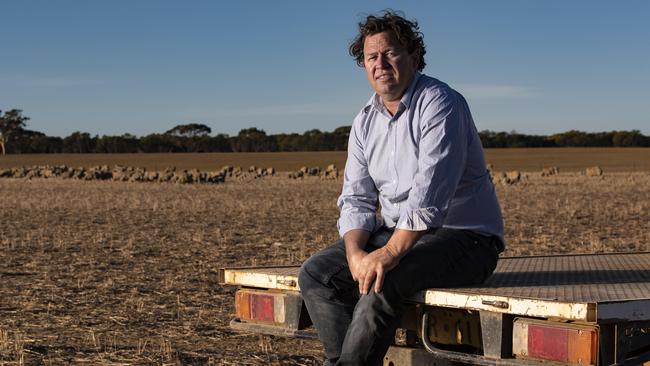Sheep trade forced to take stock after live export changes
Attorney-General Christian Porter has warned some live sheep export operators could struggle to keep operating.

Attorney-General Christian Porter has warned some live sheep export operators could struggle to keep operating after the government unveiled sweeping changes to the industry, including reducing the numbers of stock allowed on vessels headed for the Middle East by nearly 30 per cent.
Mr Porter, from Western Australia where about 85 per cent of live sheep traders operate, said the $250 million industry needed to be cleaned up, even if it meant some operators would go under.
“This is the toughest response of any government in respect to the regulation of this trade. I believe it will work. I believe that you will get very significant improvements,” Mr Porter said.
“The changes are so tough, they are going to put the economic viability of some of the participants in this industry under a big question mark, but if that’s what you have to do to clean the industry up, then that’s where we’re at.”
Agriculture Minister David Littleproud said yesterday the government would adopt all 23 recommendations from a review into the sector by veterinarian Michael McCarthy, which will include an independent umpire on each ship to ensure animal welfare standards were met.
There is also a “heat stress model” that the government has agreed to adopt after “further modelling and consultation” that would reduce stock density by between 19 per cent and 79 per cent depending on the age and ventilation of the vessel.
Mr Littleproud said he would introduce a bill in parliament to toughen penalties for company directors who tried to gain profit from breaking export rules, although they would not impact on directors who broke export laws through incompetence.
Under the proposed laws, a company director who breaks export rules could be fined $2.1m or face 10 years’ prison, while a company could be fined at least $4.2m.
Mr Littleproud will travel to the Middle East this weekend, including Kuwait and Qatar, to assure them Australia will continue its trading to the region.
“I intend to visit those key trading partners to let them understand how important they are to us and that what we have put in place, a framework that we have put in place, will make sure there is a sustainable and viable live trade industry into the future,” he said.
WA Agriculture Minister Alannah MacTiernan said she was seeking legal advice on whether the state government could put further restrictions on the sector.
Farmer Steven Bolt, whose family has run Claypans, 220km east of Perth since 1983, said he hoped the live export business could continue to thrive despite the harsher welfare standards.
The Bolts breed large-framed, fast-maturing sheep and sell some for live export. Mr Bolt said live exports were especially important in WA, where the two meat processors are at close to full capacity between September and January.
“The farmers don’t have the feed on the ground for those sheep, they’ve got new lambs coming on so they need to make some space,” he said. “WA growers are unable to hold large volumes of sheep that are not suitable for our domestic abattoirs markets.”
Emanuel Exports, the company accused of bad practice, welcomed the clampdown on export ships. Director Nick Daws said his family business had faced up to “harsh lessons” after the “devastating” deaths of 2600 sheep aboard the Awassi Express vessel in August last year and already reduced its sheep density rates by 17.5 per cent in summer months.
The company is the biggest exporter of Australian live sheep, transporting more than one million of the 1.8 million sheep sold live to overseas buyers last year, 95 per cent to Middle Eastern nations. “Our large industry presence means we have a unique role in maintaining an ethically viable trade, and we are committed to taking proactive steps to further improve animal welfare,” Mr Daws said.
Australian Veterinary Association director Lyn White said the decision to keep the industry open was an “appalling breach of faith” by the government. “Instead of backing the science as promised, the Turnbull government is backing a compromised vet and a disgraced industry, effectively green-lighting its ability to inflict further suffering,” she said.
Labor leader Bill Shorten said the industry should be shut down.
Additional reporting: Paige Taylor


